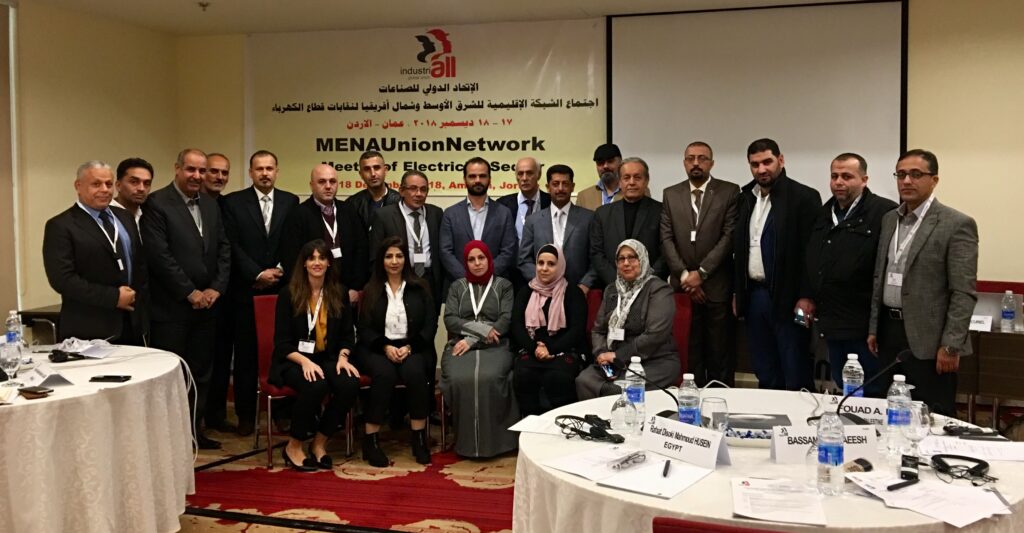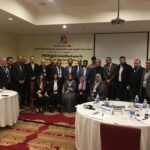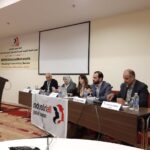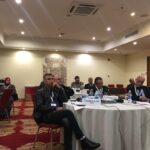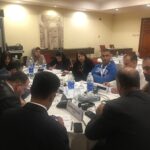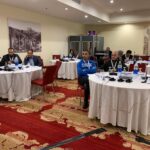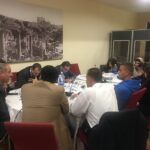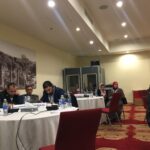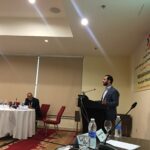Read this article in:
- AR
English
15 January, 2019A network meeting of the Middle East and North Africa (MENA) electricity sector was held in Amman, Jordan, on 17-18 December 2018.
Despite severe repression, electricity unions in the MENA region are growing in strength and influence, and building solidarity networks. This was the message of Ali Al Hadid, president of host union the General Trade Union for Workers in Electricity in Jordan, who opened the first meeting since the creation of the network in Ankara, Turkey in 2017.
The network brings unions together to share knowledge and experience, provide solidarity, and improve communications. Over the past year, it has provided support against government repression in Algeria, and to unions in Iraq in their struggle against corruption and a lack of public services. Iraq is a great success story, because the electricity union won inclusion for 150,000 precarious workers.
The participants reported on the situation in their countries. In Yemen, the electricity infrastructure has been destroyed due to the war and vandalism, 90 per cent of the country is in darkness, and 12,000 electricity workers have not been paid in more than two years.
In Algeria, repression of the SNATEGS union by the government continues. Union leaders are threatened with jaiI, and have had false charges laid against them.
The Jordanian electricity union made progress towards a collective agreement after government attacks on health insurance. Electricity workers did not have the right to strike, but this was successfully challenged in parliament. An electricity union was established in Palestine. There is almost no electricity generation, as most power is bought from Israel, and workers work in distribution for the municipalities.
IndustriALL executive committee member Hashmeya Alsaadawe announced the creation of the union national electricity network to coordinate demands and to protect the basic rights of workers in Iraq's electricity sector.
Executive committee member Abdelmajid Matoual said that since 2014 in Morocco, the Fédération nationale des travailleurs de l'énergie has protested the agreement between the government and mayor of Casablanca to hand over electricity distribution to Engie subsidiary Lydec Suez.
The meeting adopted a short term action plan until the next meeting, and a longer term plan until 2023. The short term plan will focus on creating a structured network, and providing occupational health and safety training. A communications network will be created, and unions will coordinate their work on global framework agreements.
The long term plan is to elevate social dialogue in the sector, and conduct a detailed mapping of the national electricity companies and multinationals in the sector to make it easier to coordinate work.
Sector director Diana Junquera Curiel said:
“This network has achieved remarkable things in a very short space of time. If we continue in this way, we will be able to dramatically improve conditions for electricity workers in the region, while also improving the quality of our engagement with employers.”
IndustriALL regional manager Ahmed Kamel said:
“The quality debates indicate that privatization and the expansion of multinationals into the electricity sector pose common challenges to workers in the region. Union networking is key to addressing this and raising workers’ voices.”
